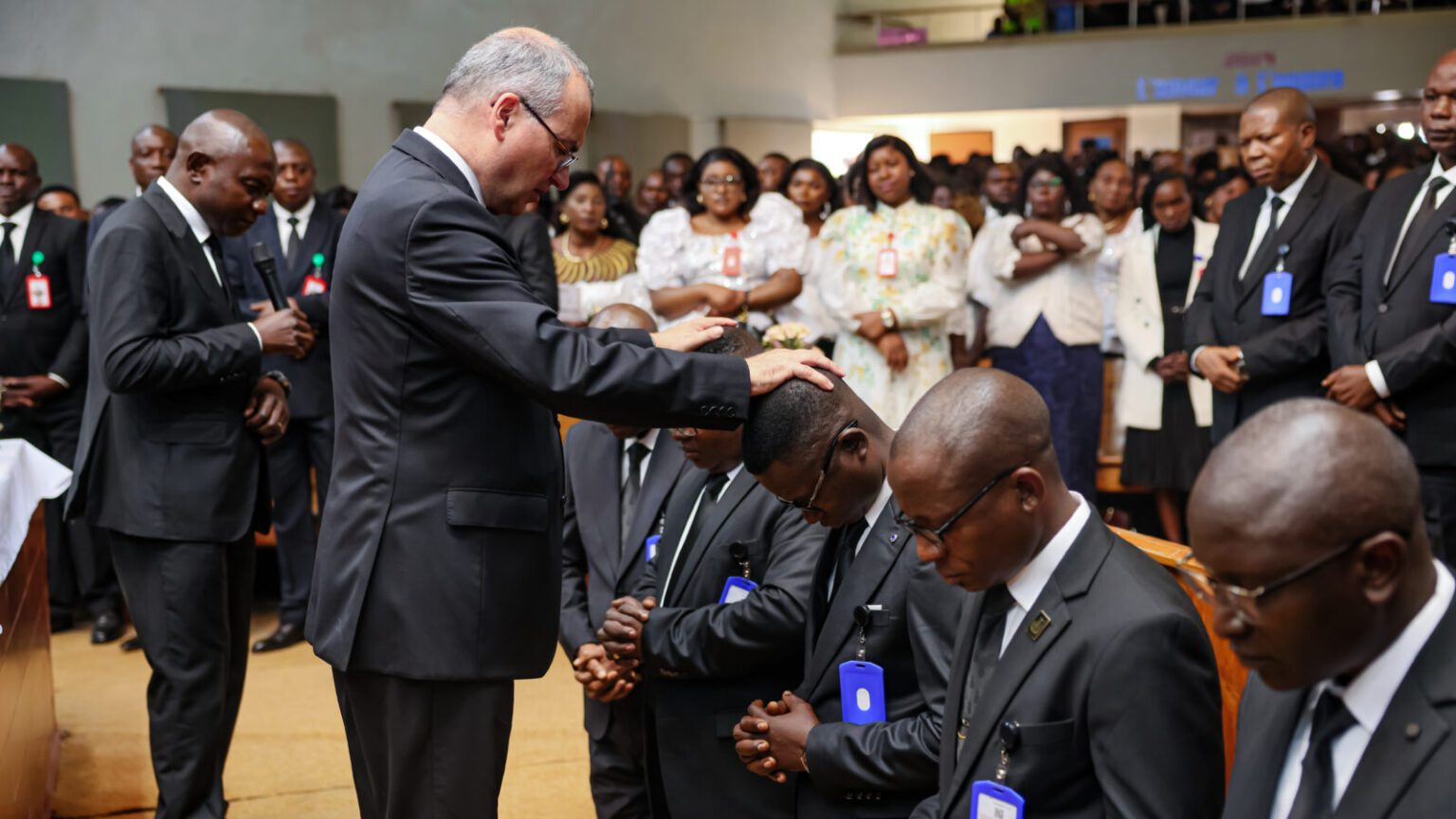
Homiletics (2): Preaching as one who is sent

Proclaiming God’s word at the altar – that raises questions. At the top of the list: Where does my ministerial authority to preach come from? How do I understand myself as one ordained by the Apostle ministry?
Homiletics is a topic that needs to be addressed within the context of our identity as New Apostolic Christians. Reflection on the role as a minister, and as a preacher within the Church, is a vital component of growing in spiritual ministry.
Serving as a minister is a divine calling. It is a gift to be an instrument to proclaim Christ and His gospel. Along with it comes the necessary self-awareness of one’s calling. With the authorization to proclaim Christ, comes great responsibility, because through ordination the minister does not represent him or herself, but is given authority as one who is sent to represent the Apostle ministry.
Going to the root
The Fifth Article of Faith states the following: “I believe that those designated by God for a ministry are ordained only by Apostles, and that authority, blessing, and sanctification for their ministration come forth out of the Apostle ministry.”
It is God who chooses ministers. It is fundamentally not a human decision. God’s will is implemented through the Apostle ministry, who is authorised to ordain men and women into a spiritual ministry. Ministers can only fulfil their duties in unity with the apostolate. It is within the Apostle ministry where “authority, blessing, and sanctification for their ministration” is rooted.
Just as the Apostles participate in the authority of Jesus Christ, so ministers participate in the authority of the Apostle ministry. Ministers, for example, receive authority to consecrate Holy Communion, to proclaim the forgiveness of sins by commission of the Apostle, dispense Holy Baptism with water, and particularly relevant here, to proclaim the word of God (CNAC 2.4.5; 7.7; 8.1; 8.2; Divine Service Guide, SE 2/22)..
Authority with responsibility
Just as the Apostles are required to authentically represent Christ, so ministers are required to authentically represent the apostolate, and the authority and teaching they represent. Ministers cannot act and teach out of their own authority. Their ministerial duties are circumscribed by the official teaching of the Church and scope of authority they have received.
Our Catechism also states: “Those who have been called to a ministry serve out of love toward God and their neighbour. They align themselves with the example of Jesus, and know that they are instruments in the hand of God” (CNAC 7.8).
A responsibility to teach accurate doctrine
Our doctrine is rooted in the authority of the Apostle ministry to interpret the Scriptures through the activity of the Holy Spirit. In this regard our Catechism specifically says: ‘The proper proclamation of God’s universal will to save also occurs through the “authority” bestowed through the apostolate’ (CNAC 2.4.5).
The central message is the proclamation of the life, death, resurrection, and return of Christ. It is to assist the apostolate to prepare the bride of Christ.
The scope of our preaching is also circumscribed by the content of the Divine Service Guide. Of course, all ministers bring their own unique gifts, spheres of knowledge and competencies to the Church. All ministers rely on the Holy Spirit for sermon preparation and delivery, yet it is always a process that is rooted in the authority bestowed by the Apostle ministry. In particular, a sermon is not an open-ended activity. The implementation of homiletical principles must be in line with what the Church wants to teach, and which accurately reflects the church’s doctrine and Catechism.
Reflecting on ministry as one who is sent
Reflection on the role of a minister brings one closer to the source and nature of the New Apostolic faith. It deepens appreciation for God’s gift to the Church in the sending of Apostles today. It also fosters a greater understanding of the foundation of ordination and the source of authority to act and preach within the Church.
Ministers are sent. It is God who chooses, and the Apostle ministry implements God’s will through ordination and commissioning. The bride of Christ awaits, and this calling must be fulfilled. The use of homiletical principles builds on this foundation.
Proclaiming God’s word at the altar: There are still many questions unanswered. The next one is: Where does the inspiration come from? From the Holy Spirit, of course – but that is not the only source. That is the topic of the next episode of this series.
Photo: Vitalii Vodolazskyi – stock.adobe.com
About the author

Markus Cromhout (born 1972) is a theologian at the New Apostolic Church Southern Africa. He is active in his congregation as an Evangelist. He studied at the Faculty of Theology and Religion at the University of Pretoria and obtained his doctorate in New Testament Studies. In addition to scientific publications, he also writes popular science. He conducts seminars on the subject of “Homiletics” and provides weekly background videos.











